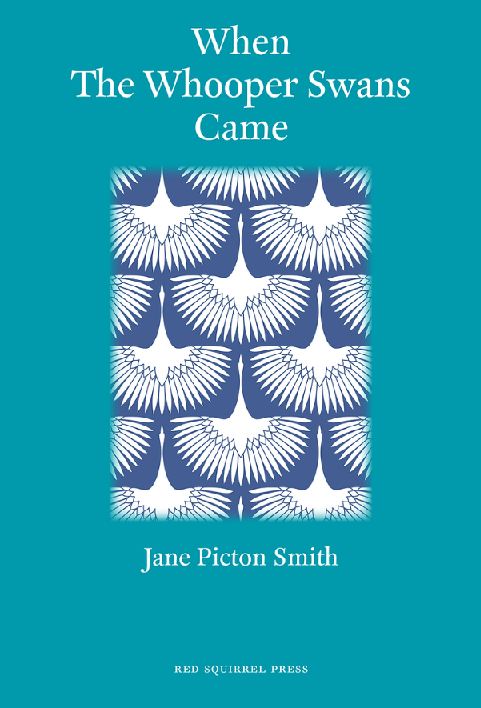When The Whooper Swans Came
Jane Picton Smith
(Red Squirrel Press, 2023; pbk, £7)
Our thoughts are tended
shrines within the forest.
(‘The Bellbird’)
There’s a notion that poems with hopes of competition success should be equipped with particularly arresting titles. If so, then surely Jane Picton Smith’s ‘Jean Brodie and the Scotrail Train Announcement’ must be a shoe-in for some contest yet to be entered. Poetry competitions have their quirks, but at their best they can offer real opportunities to excellent, emerging poets. When The Whooper Swans Came is Picton Smith’s first pamphlet, and the deserving winner of this year’s William Bonar Prize.
Prize culture, in poetry as much as in any other field, is often freighted with layers we’d prefer to circumnavigate, but this particular award is a world away from that potential mire, properly honouring the late Bonar’s memory. The organisers ‘were keen to provide some mentoring’ as well as offering superb editorial advice held to publishing standards by Red Squirrel press. Those familiar with The Dark Horse, and anything else featuring Gerry Cambridge’s sure and brilliant hand, will know that both the editorial support and typographical qualities are of the highest standard. A dream prize for any debut publication then. Both the adjudicating team and all at the press are to be commended.
However, although this is the poet’s first collection, Perthshire-based Picton Smith comes with considerable verse credentials, already having been long-listed in the National Poetry Competition, commended in the Hippocrates Prize, and placed second in the Neil Gunn Writing Competition; she also holds a PhD in Contemporary Scottish Poetry. When The Whooper Swans Came demonstrates what a pamphlet can achieve. This is a taut beauty, flensed of flab, an example of less being more, with the promise of a great deal yet to come.
Opening the collection with the upending words ‘When we leave’ (‘The Archivists’) prepares the reader for the poet’s deceptively deft lyricism, challengingly plaiting futures with histories. The poet’s ‘library of days’ is far from straightforward.
In a country like Scotland, landscapes and names often charm greatly, but Picton Smith’s places are charged with a considerable agency, which is not all universally benign. ‘Black Bag Blues’ has a salutary awareness of ‘toxic emission’, whilst
All this until we’re gone,
even so, our homes stare on:
douce across the river.
(‘House on the Hill’)
There’s a developing undertone where the narrator is well-aware that human control is limited, and rather like that black bag, release may not always be near. How good it is to see the poet’s gutsy use of Scots words like ‘douce’, and that ‘gauzy watergaw’ teased through the English.
Meanwhile. ‘King Canute’ speaks courageously of when ‘We weren’t like other mums/ and daughters who flung their love yous/ casually, as schoolbags over shoulders’ and when ‘learning like an heirloom’ turns to loss in age. What a devastating use of plant names threaded in that hauntingly painful final line, delivered in a poem which pays full attention to the formal patterning as well as to the closeness of word choice. Again, consider that unanticipated twist in what might otherwise have been a too- easy charm.
There’s a similar integrity in ‘Loch Machar’, celebrating Dundee University’s own former Curator of Grounds and Gardens, Alexander Machar, ‘More tottie than muckle’, taking his ‘place/among the grand sequoias’; a grand fusion of classification, Scots and elegiac imagery, and with some spiritual legacy of ‘The Cotter’s Saturday Night’, finishes fittingly on ‘you hold infinity’.
That celebration is also present in the titular poem, with those ‘apples left beside beside the door/ and bramble gin.’ Even so
Their departure:
a collective loss
that none can name.
Just as ‘Before the Tide Turns’ offers a child’s happy memory, cut sharply with something of ‘ the diminishing pitch,/ which will determine Full Time’, the whole pamphlet is significantly more than the line-count suggests, piercing nostalgia with foresight and pain.
No, I haven’t forgotten Miss Brodie. That is one of your own treats to come.
Beth McDonough


Leave a Reply